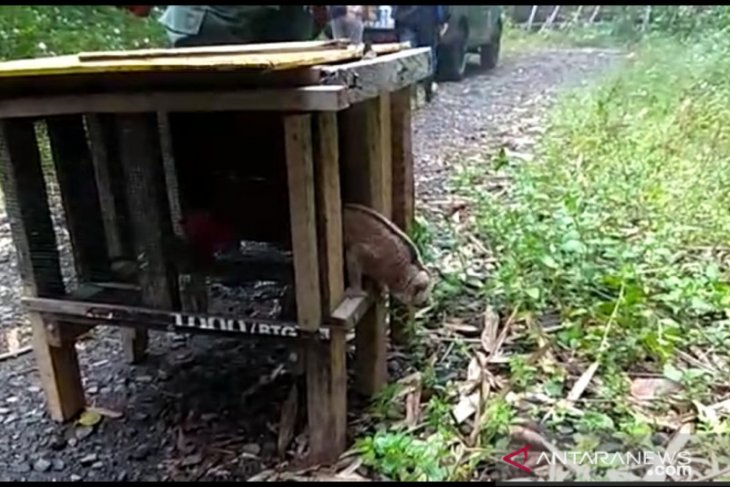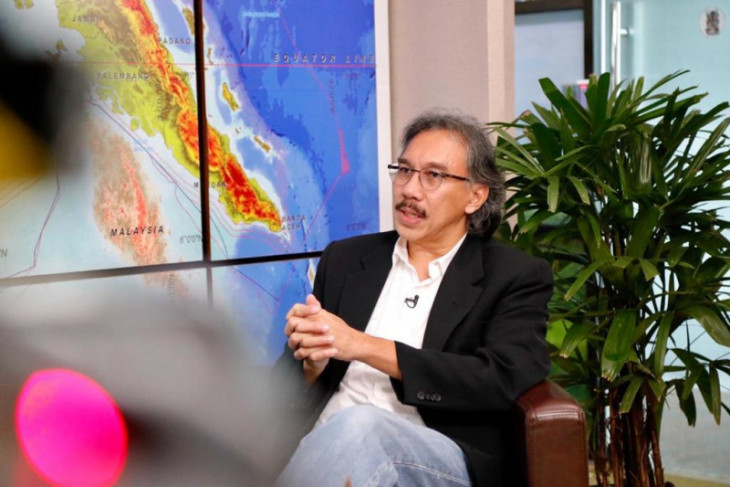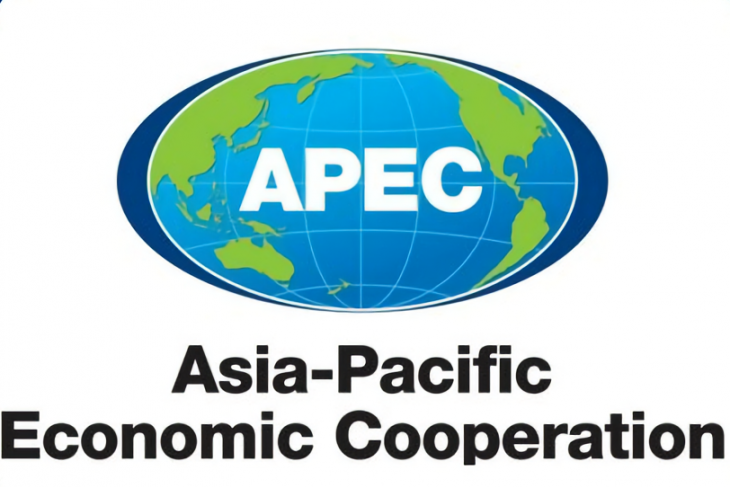Live Streaming
Program Highlight
Company Profile
Indonesia Selected as ECOSOC MMember for 2021-2023 Period
Written by Ani HasanahIndonesia won a vote in the United Nations, Wednesday, June 17, to be one of the Economic and Social Council (ECOSOC) members for the 2021-2023 period, representing the Asia-Pacific, along with Japan and Solomon Island.
The election, held with no plenary session owing to safety concerns in the wake of the COVID-19 pandemic, involved some 190 permanent representatives to cast their votes, the Ministry of Foreign Affairs noted in a statement received by Antara News Agency in Jakarta on Thursday.
Indonesia secured 186 votes from the total ballot, while Japan pocketed 185 votes, and Solomon Island garnered 187 votes. The council has 54 nations as its members for a three-year work period.
This is the 12th time that Indonesia joins the ECOSOC after earlier for the 2012-2014 period, while in 1970 and 2000, it was honored to be the council’s president, while in 1969, 1999, and 2012, it served as the vice president.
For this period, Indonesia is committed to actively participating to accomplish the Sustainable Development Goals (SDGs) in 2030, as well as growing roles on strategic issues, especially in several bodies under the ECOSOC, including the FAO and WHO, according to the ministry.
This membership holds significance for Indonesia in the form of encouraging post-pandemic economic and social recoveries, mirroring its global governance, and enhancing the national priority program that aligns with the SDGs, among others.
The Presidential Office emphasized that it was an honor for Indonesia to garner greater trust from the international community, as the country was also elected as a member of the UN Security Council for 2019-2020 period and the UN Human Rights Council for the 2020-2022 period.
"The Government of Indonesia is immensely grateful and really lauds the trust and honor bestowed on the country from the international community for being chosen to be the ECOSOC member for the 2021-2023 period," Fadjroel Rachman, President Joko Widodo’s spokesperson, noted.
"We express our gratitude to the Ministry of Foreign Affairs and Minister Retno Marsudi, as well as the cabinet of Indonesia Maju for its collaborative support in Indonesia's diplomacy, and also to the people of this country," he added. (ANTARA)
June
Bengkulu Conservation Office Releases Slow Loris, Eagle into Wild
Written by Ani Hasanah
The Bengkulu Natural Resources Conservation Office (BKSDA) releases a male Sunda slow loris to the Bukit Kaba Eco-tourism Park (TWA) in Rejang Lebong District. ANTARA/HO-BKSDA Bengkulu
The Bengkulu Natural Resources Conservation Office (BKSDA) released a male Sunda slow loris and a male black eagle into the Bukit Kaba Eco-tourism Park (TWA) in Rejang Lebong District.
The release of the Sunda slow loris (Nycticebus coucang) and black eagle (Ictinaetus malayensis) into the wild several days ago was part of the endeavors to restore the park’s function and ecosystem, Said Jauhari, head of the Conservation Section I of the Bengkulu BKSDA, stated in Rejang Lebong, Bengkulu, on Thursday.
The conservation office examined the health of the two protected animals and reviewed the feasibility of the ecotourism park as a habitat before releasing them.
The BKSDA zeroed in on the Bukit Kaba TWA as a release site since the area is well-protected and in good condition. It has copious food sources, perching and nesting places, as well as an environment to support the breeding of animals.
They have also ensured that the release of slow loris and black eagles will not disrupt the natural balance of the ecosystem in the Bukit Kaba TWA. Black eagles inhabit lowland, evergreen, and montane forests, up to four thousand meters above sea level. They prefer slopes and mountainous country regions and areas with forest cover.
Approximately 10 thousand to 100 thousand birds are spread across northeastern Pakistan and the base of the Himalayas through Bhutan, India, and Sri Lanka, and down into Malaysia and Indonesia.
The Sunda slow loris, also known as the greater slow loris, is native to parts of Indonesia, Malaysia, Thailand, and Singapore.
Locals in these regions know the Sunda slow loris by other names. Its scientific name, coucang, is derived from its common name in Indonesian, kukang. However, it is also known there as malu-malu, which means “shy”. (ANTARA)
June
Government to Proceed with Priority Infrastructure Projects
Written by Ani Hasanah
Deputy for Coordination of Infrastructure and Transportation of the Coordinating Ministry for Maritime and Investment Affairs Ridwan Djamaluddin. ANTARA/HO-Ministry for Maritime and Investment Affairs/sh
The Indonesian government will go ahead with the development of priority infrastructure projects despite the state budget reallocation for COVID-19 handling, according to the Coordinating Ministry for Maritime and Investment Affairs.
"The government's budget is largely allocated for COVID-19 handling. However, it does not mean that the development of infrastructure must be stopped, as this project is aimed at meeting the public's long-term needs," Deputy for Coordination of Infrastructure and Transportation Ridwan Djamaluddin noted in Jakarta on Thursday.
Djamaluddin elaborated that infrastructure development was aimed at maintaining productivity that will further facilitate the creation of jobs for the public.
"That is the essence of infrastructure development. Hence, this must be continued. Some projects might have to be rescheduled, and we proceed with priority projects. However, clearly, we will continue the infrastructure projects, especially those that offer strategic benefits to the public," he remarked.
Djamaluddin cited as an example the development of an airport in Papua that must be completed despite its less economic benefits, as supporting the distribution of logistics and public mobility are of paramount importance.
"Although it offers less economic benefits, (the airport) will be necessary for people in the region for distributing logistics and facilitating greater public mobility," he stated.
Indonesia currently has 223 national strategic projects worth around Rp4.2 quadrillion on its priority list that has been revised several times since 2016.
The country completed 92 infrastructure projects during the 2016-2019 period, against the 144 projects that the Committee for Acceleration of Priority Infrastructure Delivery (KPPIP) had targeted to complete by 2020.
President Joko Widodo recently drew attention to the fact that despite the COVID-19 pandemic weighing down heavily on Indonesia, the development of national strategic projects must continue while abiding by the relevant health protocols.
The head of state also instructed to accelerate programs that can drive the people’s economy, such as land certification, Indonesia’s transmigration program concerning legalization of land, and the social forestry programs.
Public Works and Public Housing Minister Basuki Hadimuljono stated that groundbreaking for several toll road projects will break ground this year, including the 14-kilometer (km) section 4 of the Banda Aceh-Sigli toll road, the 33-km sections I and V of the Balikpapan-Samarinda toll road, and the 131-km Pekanbaru-Dumai toll road. (ANTARA)
June
APEC Urges "Greener New Normal", Adoption of Circular Economy
Written by Ani Hasanah
Plans for recovery from the COVID-19 pandemic must not only help improve public healthcare, but also build environmental sustainability, an APEC Policy Support Unit researcher said, urging member nations to work towards a "greener new normal”.
Researcher Satvinderjit Kaur Singh made the appeal in a written statement issued by the APEC Policy Support Unit, which was received in Jakarta on Wednesday.
According to the World Health Organization (WHO), unhealthy environments — due to contaminated air, soil, and water — cause an estimated 12.6 million deaths on a yearly basis.
A major source of these pollutants is the global waste crisis which threatens millions of businesses and livelihoods, especially in developing economies.
Tearfund, an international poverty charity, estimates that between 400 thousand and one million lives are lost in developing economies due to poor waste management.
"Hence, it is important that we work towards a greener and cleaner future in our new normal," Singh stated.
She argued that an effective way to tackle the waste crisis is through the adoption of the circular economy -- a system in which resources are used to their maximum extent before being disposed.
"The circular economy minimizes waste by reusing, repurposing, remanufacturing, and recycling used products. This allows consumed resources to re-enter the production chain. Through better management of resources and reducing waste, over-extraction and over-production of goods can be prevented," she said.
The waste issue is pertinent in the APEC region as well, she pointed out. Data from the World Bank projects a 36-percent growth in solid waste generated in APEC economies between 2016 and 2050.
An average resident in the region is expected to generate 1.1 kilograms of waste daily by 2050. This problem is further aggravated as the majority of waste in APEC is mismanaged and ends up harming the environment, industries, and livelihoods.
The COVID-19 pandemic has exacerbated the waste crisis, Singh said. Surplus food produced is often dumped, single-use items have become prevalent, and use of takeaway food packaging has skyrocketed due to lockdowns, she noted.
"Nevertheless, the pandemic has also given us an opportunity to rethink our ways. We cannot go back to business as usual. Continuing to deal with each impending crisis with the same unsustainable economic model is a recipe for disaster," Singh averred.
She further explained, while short-term fiscal measures will help soften the impact, long-term shocks to the system will continue to test our capacities.
Threats to the environment are far more permanent and deep, hence sustainability strategies for the future should not take a back seat despite the challenges posed by COVID-19, she cautioned.
Circular practices are already in place to deal with supply-chain disruptions. For example, businesses are repurposing scrap fabrics to manufacture personal protective equipment, and the food and beverage sector is working with other organizations to redirect surplus food to the needy.
Similarly, innovations continue to support current shortages and future green transitions. For instance, technology is being used to decontaminate N95 masks and responsible packaging innovations continue to provide for sustainable options during home delivery spikes.
Therefore, it is important for economies to recognize the threats of the waste crisis and develop recovery packages that can deliver on both environmental and economic goals, Singh said.
"The circular economy should be built into the 'new normal' to enhance the region’s sustainability and resilience. APEC considers the circular economy to be an important factor in pursuing sustainable development in the region," she continued.
"While the pandemic has become our foremost concern this year, APEC should still pursue long-term priorities like environmental sustainability, which will be key in rebuilding a stronger economy after the health crisis subsides. More work in this area will help build a healthier environment for all," she stated. (ANTARA)



